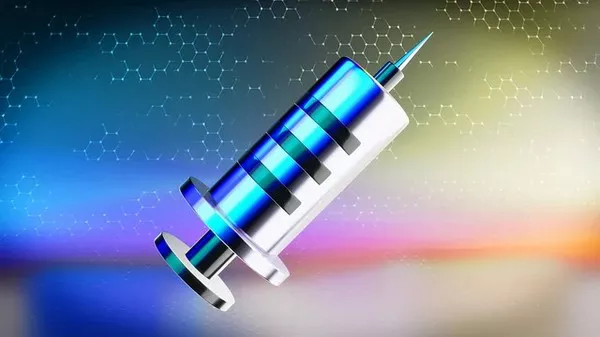Managing type 2 diabetes involves a multifaceted approach that includes diet, exercise, medication, and sometimes the use of supplements. While some supplements can be beneficial for managing blood sugar levels, others can be harmful and may interfere with medications or exacerbate symptoms. It is crucial for individuals with diabetes to be well-informed about the supplements they take and to consult healthcare professionals before adding any new supplement to their regimen. This article will explore which supplements diabetics should avoid and the reasons behind these recommendations.
The Importance of Caution in Supplement Use for Diabetics
Supplements can have powerful effects on the body, and their interactions with medications, foods, and the condition itself can lead to unintended consequences. For diabetics, maintaining stable blood sugar levels is critical, and certain supplements can disrupt this balance. Additionally, supplements are not regulated as stringently as prescription medications, meaning their purity, potency, and safety may vary.
Common Supplements Diabetics Should Avoid
Niacin (Vitamin B3)
Niacin is often taken to improve cholesterol levels. However, it can also raise blood sugar levels, making it risky for diabetics. High doses of niacin can lead to insulin resistance, worsening blood glucose control. Moreover, niacin can cause flushing, liver toxicity, and gastrointestinal upset at high doses, further complicating diabetes management.
Ginseng
While ginseng is popular for its supposed energy-boosting properties and potential to lower blood sugar, its effects can be unpredictable. It can cause hypoglycemia, especially when taken with diabetes medications. The inconsistency in ginseng supplements’ potency and the lack of standardization make it a risky choice for diabetics.
St. John’s Wort
St. John’s Wort is commonly used for depression and anxiety, but it can interfere with a wide range of medications, including those for diabetes. It can decrease the effectiveness of oral hypoglycemic agents and insulin. Additionally, St. John’s Wort can cause photosensitivity, gastrointestinal symptoms, and allergic reactions.
Aloe Vera
Oral aloe vera supplements are sometimes used for their purported benefits in lowering blood sugar. However, they can cause gastrointestinal distress, electrolyte imbalances, and can interact with diabetes medications, leading to hypoglycemia. The lack of reliable dosing information and potential for contamination make aloe vera supplements a questionable choice for diabetics.
Bitter Melon
Bitter melon is often marketed as a natural way to manage blood sugar levels. While some studies suggest it may have hypoglycemic effects, it can also cause gastrointestinal issues and dangerously low blood sugar levels when taken with diabetes medications. The variability in preparation and dosage of bitter melon supplements further complicates their safe use.
Chromium
Chromium supplements are believed to improve insulin sensitivity, but the evidence is mixed. High doses of chromium can cause kidney and liver damage, gastrointestinal discomfort, and allergic reactions. For diabetics with pre-existing kidney or liver conditions, chromium supplements can exacerbate these issues.
Vitamin E
Vitamin E is an antioxidant that is sometimes used to combat oxidative stress in diabetes. However, high doses of vitamin E can interfere with blood clotting and increase the risk of hemorrhagic stroke. This risk is particularly concerning for diabetics who may already have cardiovascular complications.
Magnesium
While magnesium deficiency is common in diabetics and supplementation can be beneficial, excessive magnesium can cause diarrhea, nausea, and abdominal cramping. Overuse of magnesium supplements can also lead to severe cardiovascular and respiratory issues, particularly in individuals with renal impairment.
Selenium
Selenium is an essential trace element with antioxidant properties. However, high doses can lead to toxicity, causing symptoms such as hair loss, gastrointestinal distress, fatigue, and nerve damage. For diabetics, selenium toxicity can further complicate the management of their condition.
DHEA (Dehydroepiandrosterone)
DHEA is a hormone that is sometimes taken as a supplement to improve energy and libido. However, it can interfere with blood sugar control and increase insulin resistance. Additionally, DHEA can cause hormonal imbalances, leading to issues such as acne, hair loss, and mood swings.
The Risks of Over-the-Counter Supplements
Over-the-counter (OTC) supplements are widely available, but they are not subject to the same rigorous testing and approval processes as prescription medications. This lack of regulation can lead to:
- Inconsistent Potency: The active ingredient in supplements may vary between batches, leading to unpredictable effects on blood sugar levels.
- Contaminants: Supplements may be contaminated with harmful substances, including heavy metals, pesticides, and other chemicals.
- Mislabeling: Ingredients listed on the label may not accurately reflect the contents of the supplement, leading to unintended consumption of harmful substances.
- Drug Interactions: Supplements can interact with prescribed diabetes medications, either reducing their effectiveness or increasing the risk of side effects.
Guidelines for Safe Supplement Use
To minimize risks, diabetics should follow these guidelines when considering supplements:
- Consult Healthcare Providers: Always discuss any new supplement with a doctor, pharmacist, or dietitian. They can provide personalized advice based on your medical history and current medications.
- Research Supplements: Look for scientific evidence supporting the safety and efficacy of the supplement. Reliable sources include peer-reviewed journals, government health websites, and reputable medical organizations.
- Choose Reputable Brands: Select supplements from well-known, reputable manufacturers that adhere to good manufacturing practices (GMP) and have third-party testing for quality and purity.
- Monitor Blood Sugar Levels: Regularly check blood sugar levels when starting a new supplement to detect any adverse effects early.
- Start with Low Doses: If approved by a healthcare provider, begin with the lowest possible dose and gradually increase if needed, while monitoring for side effects.
- Report Side Effects: Inform your healthcare provider of any adverse reactions or changes in blood sugar control after starting a new supplement.
Alternatives to Supplements
Instead of relying on supplements, diabetics can focus on proven lifestyle changes and dietary modifications to manage their condition:
- Balanced Diet: Emphasize whole grains, lean proteins, healthy fats, and plenty of fruits and vegetables. Avoid processed foods, sugary beverages, and excessive amounts of refined carbohydrates.
- Regular Exercise: Engage in at least 150 minutes of moderate-intensity aerobic activity per week, along with strength training exercises.
- Weight Management: Achieve and maintain a healthy weight through a combination of diet and exercise.
- Stress Reduction: Practice stress management techniques such as mindfulness, meditation, or yoga to help stabilize blood sugar levels.
- Adequate Sleep: Ensure sufficient sleep each night, as poor sleep can negatively affect blood sugar control.
See also: What Medicare Coverage for Type 2 Diabetes Drugs
Conclusion
While some supplements can offer health benefits, diabetics must exercise caution due to the potential for adverse effects and interactions with medications. Niacin, ginseng, St. John’s Wort, aloe vera, bitter melon, chromium, vitamin E, magnesium, selenium, and DHEA are among the supplements that should be avoided or used with extreme caution. The best approach for managing diabetes involves consulting healthcare providers, adhering to evidence-based lifestyle changes, and using medications as prescribed. By staying informed and cautious, diabetics can effectively manage their condition and avoid the pitfalls associated with harmful supplements.
Related topics:
What’s the Symptoms of High Insulin Levels in Type 2 Diabetes



























